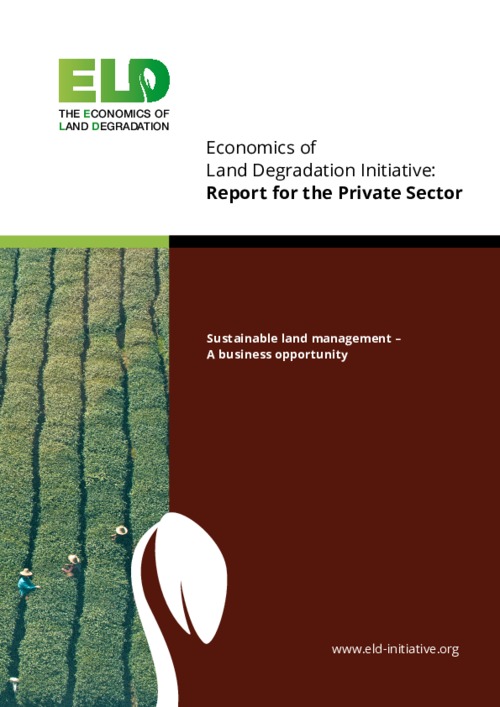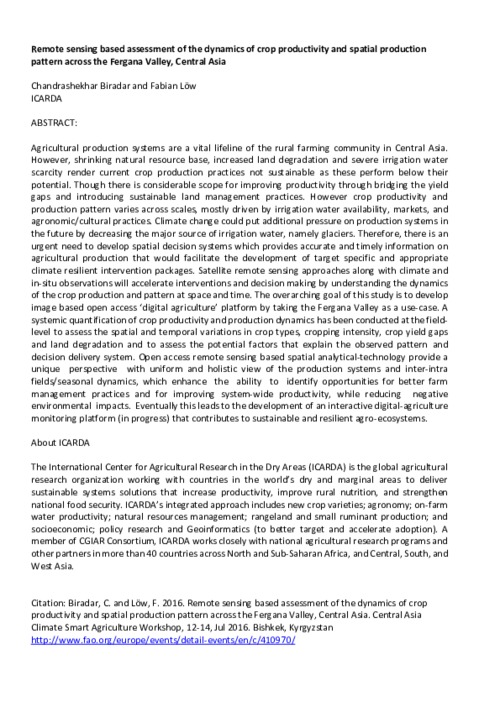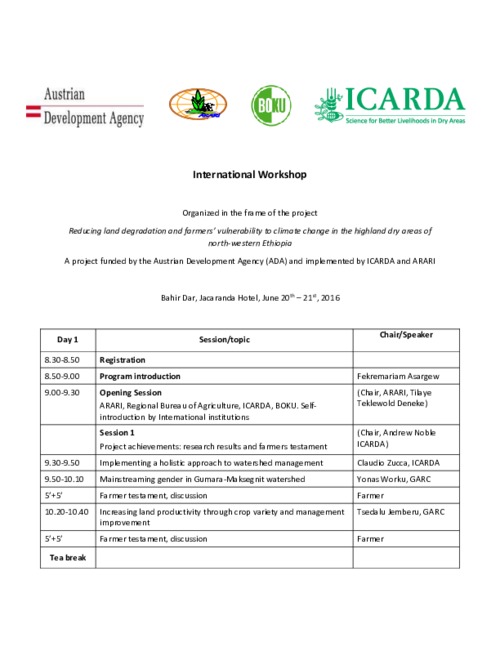Location
The International Center for Agricultural Research in the Dry Areas (ICARDA) was established in 1977. It is one of 15 such centers supported by the CGIAR. ICARDA’s founding mandate to promote agricultural development in the dry areas of developing countries remains highly relevant today.
ICARDA works with a tight focus on the problem-solving needs of resource-poor farmers, achieving this through the in-field delivery of its research outputs. Although global food production has increased by 20 per cent in the past decade, food insecurity and poverty remain widespread, while the natural resource base continues to decline.
International research centers such as ICARDA, which have helped drive previous improvements, continue to deliver new technologies to support sustainable growth in agriculture, and crucially, to work with a wide range of partners to accelerate the dissemination of these technologies.
ICARDA’s biggest strength is its staff – 600 highly skilled men and women from 32 countries. Our research and training activities cover crop improvement, water and land management, integrated crop-livestock-rangeland management, and climate change adaptation.
Other interventions include:
- Water harvesting - supplemental irrigation and water-saving irrigation techniques
- Conservation agriculture methods to reduce production costs and improve sustainability
- Diversification of production systems to high-value crops – horticulture, herbal and medicinal plants
- Integrated crop/rangeland/livestock production systems including non-traditional sources of livestock feed
- Empowerment of rural women – support and training for value-added products.
The ICARDA genebank holds over 135,000 accessions from over 110 countries: traditional varieties, improved germplasm, and a unique set of wild crop relatives. These include wheat, barley, oats and other cereals; food legumes such as faba bean, chickpea, lentil and field pea; forage crops, rangeland plants, and wild relatives of each of these species.
ICARDA’s research portfolio is part of a long-term strategic plan covering 2007 to 2016, focused on improving productivity, incomes and livelihoods among resource-poor households.
The strategy combines continuity with change – addressing current problems while expanding the focus to emerging challenges such as climate change and desertification.
We work closely with national agricultural research systems and government ministries. Over the years the Center has built a network of strong partnerships with national, regional and international institutions, universities, non-governmental organizations and ministries in the developing world and in industrialized countries with advanced research institutes.
THE ‘DRY AREAS’
Research and training activities cover the non-tropical dry areas globally, using West Asia, North Africa, Central Asia and the Caucasus as research platforms to develop, test, and scale-out new innovations and policy options.
Dry areas cover 41 per cent of the world’s land area and are home to one-third of the global population. About 16 per cent of this population lives in chronic poverty, particularly in marginal rainfed areas. The dry areas are challenged by rapid population growth, frequent droughts, high climatic variability, land degradation and desertification, and widespread poverty. The complex of relationships between these challenges has created a "Poverty Trap."
Members:
Resources
Displaying 191 - 195 of 431Economics of Land Degradation Initiative: Report for the Private Sector
With around one third of the world’s arable land degraded, estimated annual losses of 6.3 to 10.6 USD trillion, and a projected need to increase food production from land by 70 per cent by 2050, we simply cannot afford to neglect the loss of potential production from careless land management. Whenever land is not producing at its potential,it is an under-performing asset that requires investments to ensure the future supply chains that many industries depend upon.
Remote sensing based assessment of the dynamics of crop productivity and spatial production pattern across the Fergana Valley, Central Asia
Agricultural production systems are a vital lifeline of the rural farming community in Central Asia. However, shrinking natural resource base, increased land degradation and severe irrigation water scarcity render current crop production practices not sustainable as these perform below their potential. Though there is considerable scope for improving productivity through bridging the yield gaps and introducing sustainable land management practices. However crop productivity and production pattern varies across scales, mostly driven by irrigation water availability, markets, and
Management of water and salinity in the Nile Delta: A cross-scale integrated analysis of efficiency and equity issues
The overall aim of the project is to identify physical and institutional interventions to improve water management using an integrated approach across scales (from farm to main canal levels) and encompassing water quantity–quality interactions. The project’s geographical focus is the Nile Delta in Egypt.
The project was originally planned for four years. Due to a policy change announced by the Australian Government in reducing the aid investment in the Middle East and North Africa, including Egypt, the duration of the project was reduced to three years.
Reducing land degradation and farmers’ vulnerability to climate change in the highland dry areas of north-western Ethiopia inception workshop agenda
Reducing land degradation and farmers’ vulnerability to climate change in the highland dry areas of north-western Ethiopia inception workshop agenda.
Experience from WLRC Learning Watersheds: Achievements and Implications
Experience from Learning Watersheds: Achievements and Implications of the work done by the WLRC.







